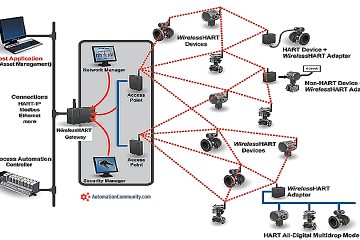23 Secrets of Successful Engineers
Unlock the secrets to a successful engineering career with this in-depth guide. Learn from industry experts and discover the techniques used by top engineers to excel in the field.
Secrets of Successful Engineers

An engineer can improve his technical skills in a variety of unique ways. Learn the 23 proven strategies and techniques used by successful engineers in this comprehensive guide.
- Hands-on Experience: By gaining hands-on experience through internships, co-op programs, or volunteering for projects, an engineer can apply their knowledge to real-world situations and learn from experienced professionals.
- Self-directed Learning: Engineers can take advantage of online resources, such as tutorials, videos, and webinars, to learn about new technologies and techniques.
- Professional Development Courses: Engineers can attend professional development courses, such as workshops, seminars, and conferences, to learn from industry experts and stay up-to-date with the latest developments in their field.
- Networking: Engineers can expand their professional network by attending industry events and joining professional organizations. This allows them to connect with other engineers and learn from their experiences and expertise.
- Mentorship: Engineers can seek out mentorship opportunities, where they can learn from experienced professionals in their field and gain valuable guidance and advice.
- Research and Development: Engineers can engage in research and development activities to explore new technologies, design new systems, and improve existing ones.
- Simulation and Modeling: Engineers can use simulation and modeling tools to explore the behavior of complex systems and test new designs in a virtual environment.
- Experimentation and Prototyping: Engineers can build prototypes and test them in real-world environments to validate their designs, and identify and resolve any issues that may arise.
- Cross-functional Collaboration: Engineers can work with other professionals in different disciplines such as Maintenance, marketing, and operations to learn new skills and gain a broader perspective on their field.
- Professional Certification: Engineers can pursue professional certifications in their field, which can demonstrate their knowledge and skills and help them stand out in the job market.
- Entrepreneurship: Engineers can become entrepreneurs and start their own companies, which allows them to apply their technical skills in new and innovative ways, and also develop business and leadership skills.
- Volunteer work: Engineers can volunteer their skills to help non-profit organizations, local communities, or other causes that align with their interests. This can help them develop new skills and gain a deeper understanding of the impact of their work.
- Gamification: Engineers can use games and simulations to learn new skills, test their knowledge, and gain a more intuitive understanding of complex systems.
- Technical writing: Engineers can improve their technical writing skills by writing technical reports, research papers, or articles, this will improve their ability to communicate complex technical information in a clear and concise manner.
- Collaborative Projects: Engineers can participate in collaborative projects with other engineers or team members to work on real-world projects and learn from different perspectives.
- Collaborative Platforms: Engineers can join online communities or collaborative platforms where they can share knowledge and collaborate with other professionals on projects and challenges.
- Hackathons and competitions: Engineers can participate in hackathons and competitions to work on projects that push the boundaries of their skills and knowledge.
- Side projects: Engineers can take on side projects outside of their usual work, that are related to their field of expertise. This can be a great way to learn new skills and explore new technologies.
- Public speaking: Engineers can develop their public speaking skills by presenting their work at conferences, seminars, and other events. This can help them communicate their ideas effectively and also help them build their professional network.
- Blogging or Vlogging: Engineers can share their knowledge and experiences by writing a blog or creating a vlog. This can help them improve their communication skills, and also help others learn from their experience.
- Virtual Reality: Engineers can use virtual reality technology to train and practice their skills in a simulated environment. This can be a valuable tool for engineers in fields such as manufacturing, construction, and maintenance.
- Embrace new Technologies: Engineers can stay current with new technologies by experimenting with them and identifying how they can be applied to their work.
- Keep Learning: Engineers can keep learning throughout their career, by reading industry publications, attending industry events, and staying up-to-date with the latest developments in their field.
You have to continuously seek out new learning opportunities, challenge yourself, and experiment with new technologies, you (the engineer) can improve your technical skills and stay at the forefront of your field.
Read Next:













Comments
1
How to enrolled in Mentorship Program